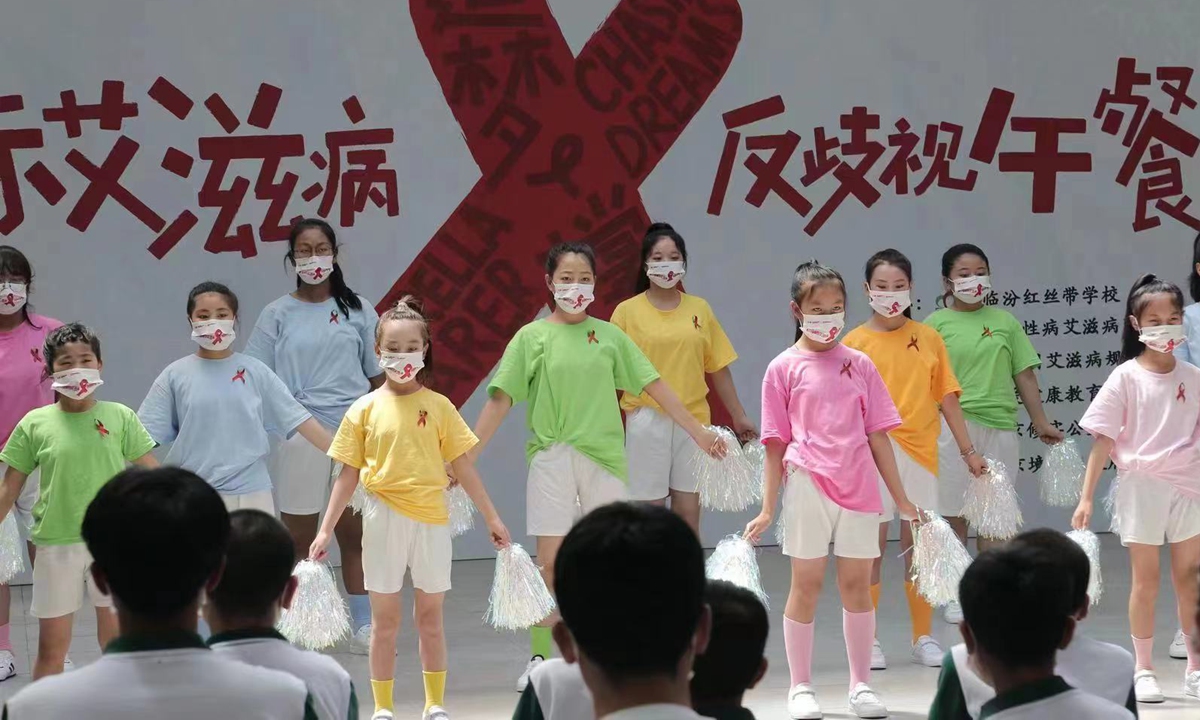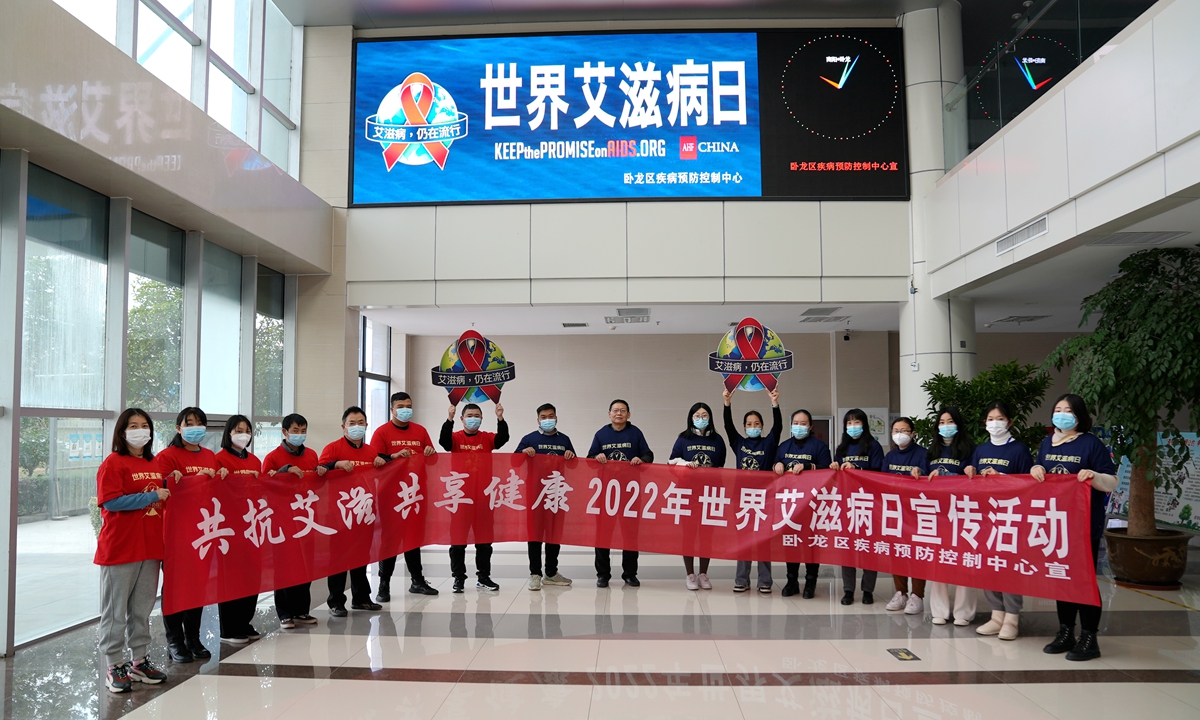
Students at Linfen Red Ribbon School performs in Linfen city of North China's Shanxi Province to commemorate the International AIDS Anti-Discrimination Day on May 26, 2022. Photo: Courtesy of AHF
Several Chinese cities reported year-on-year declines in new HIV/AIDS cases this year on Thursday, the 35th World AIDS Day, under the theme of fighting AIDS and sharing health together in China, reflecting the country's unremitting efforts in implementing supportive policies and strengthening public education in preventing the spread of the disease.
Chinese Premier Li Keqiang said prevention and treatment of AIDS is a major task to protect people's safety and health, according to the National Health Commission on Thursday. In recent years, China's AIDS prevention and treatment work has achieved remarkable results.
Since 2004, China has competently implemented AIDS prevention and control policies and has basically brought under control the modes of transmission such as mother-to-child and drug use, Wu Zunyou, chief epidemiologist at the Chinese Center for Disease Control and Prevention wrote on his Sina Weibo account.
Since the first case was detected in 1985, Beijing reported a total of 39,018 HIV/AIDS cases as of the end of October, said the Beijing Municipal Health Commission. A total of 1,462 new HIV/AIDS cases were reported in the capital city from January to October, down 11.61 percent compared with the same period in 2021, and sexual transmission accounted for 96.99 percent of the new cases, the commission said.
Shanghai also reported a low prevalence of HIV/AIDS, with reported new infections continuing to decrease throughout 2020 and 2021, according to the Shanghai health authorities. The city had detected 1,203 HIV carriers as of November 20 this year, down 28.9 percent year-on-year and 18.8 percent lower than in 2020. During the same period, the city reported 356 AIDS patients, down 28.8 percent and registered 149 related deaths, down 23.2 percent year-on-year, said the authorities.
Other regions including East China's Zhejiang Province and South China's Guangdong Province also released data related to HIV/AIDS cases, indicating a low prevalence. Zhejiang reported 3,718 new cases from January to October, down 11.4 percent year-on-year.
AIDS is at a low prevalence, but some areas and people are seriously affected, and the proportion of cases in people aged above 60 was increasing, Guangdong health authorities warned.

Photo: Courtesy of Beijing Xiushi Public-Spirited Foundation
"AIDS is still a major infectious disease endangering the health of people in China. The number of HIV infections has been increasing each year, but the incidence rate and incidence number of AIDS have shown a downward trend in the past two years," Lu Hongzhou, head of the Third People's Hospital of Shenzhen, told the Global Times on Thursday.
Domestic AIDS cases are mainly sexually transmitted, so that it is necessary to strengthen relevant education, especially in key groups, to reduce the HIV transmission rate and improve the detection rate of HIV infection, Lu said.
However, the country still faces great challenges, as the prevention and control of sexual transmission is relatively difficult, and the proportion of same-sex infections is increasing yearly, according to Lu. "We need to focus on prevention and control in groups such as the young, the elderly and the urban migrant population to strengthen the popularization of science," said Lu.
In some regions in Asia, especially among high-risk groups, the number of HIV infections has been increasing, indicating that the prevention and control of HIV/AIDS has been a long way to go, and that the international community should stand together, according to a statement the Beijing Xiushi Public-Spirited Foundation sent to the Global Times on Thursday. The foundation has held several activities across the nation in recent days to call on society to realize that "we are far from ending AIDS, and there are still many people who need help."
The theme this year includes the meaning of providing equitable AIDS prevention and control policies to each resident, and everyone needs to be proactive in preventing infection to reduce the harm to individuals as well as all of society, Wu wrote. UNAIDS has called on each person to address the inequalities that are holding back progress in ending AIDS under the theme of "Equalize."





